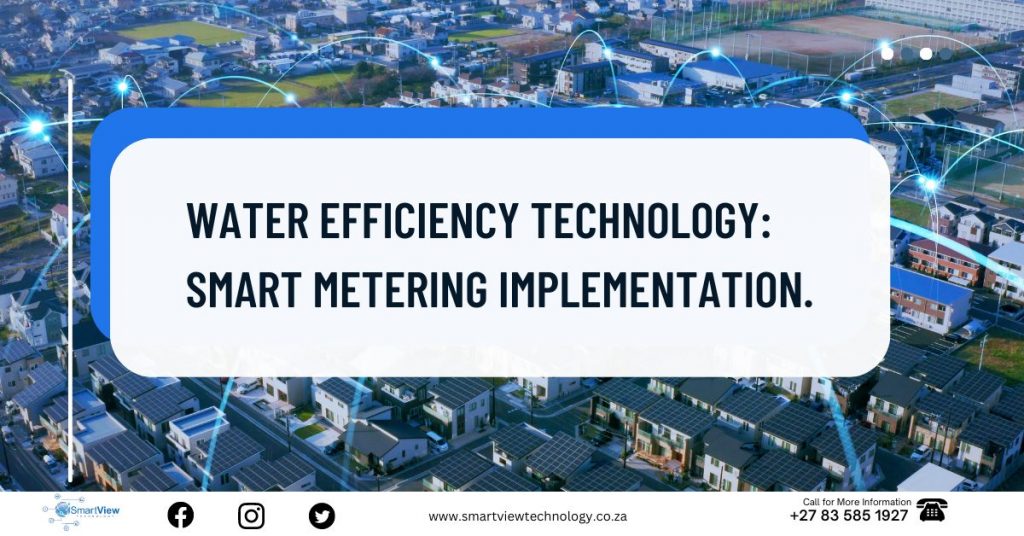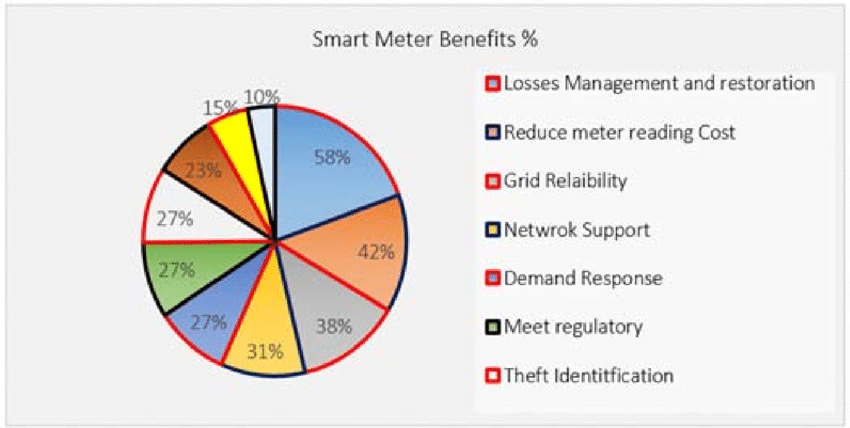
Water efficiency Technology: Smart metering implementation
Smart water metering is an advanced metering infrastructure. This technology allows for real-time monitoring and measurement of water usage in households and businesses. In recent years, many first world countries have implemented smart water metering systems. All in an effort to reduce water consumption, save money, improve conservation efforts, and increase efficiency in the distribution and utility billing of water services.
Key Learnings of Smart Water Metering
One of the main learnings from the implementation of smart water metering is the significant reduction in water usage. Studies have shown that businesses that have access to real-time data about their water usage tend to consume less water than those without access to this data. This is due to the fact that businesses are more aware of their water usage. Thus able to identify and address any leaks or other issues that may be causing high consumption.
Another key learning from the implementation of smart water metering is the improvement in conservation efforts of this natural resource. With technology that provides real-time information about water usage, allow for more effective and targeted conservation and water resources campaigns. This can include providing incentives for businesses that reduce their water usage. This also helps identify areas where water conservation efforts are needed most.
Impact of smart systems implementation
Smart water metering has also been shown to improve the efficiency of water distribution and billing. With real-time information about water usage, consumers are better able to manage and plan for water distribution.
This reduces the likelihood of shortages or disruptions in service. Additionally, smart water metering systems have been shown to display high efficiency and improve the accuracy of water bills. Therefore reducing the number of disputes and complaints related to billing.
In conclusion, the implementation of smart water metering in first world countries has led to a number of important learnings. Reducing water consumption helps to conserve the limited water resources we have on earth. It is important that industries take action to become more water wise. Ensuring that they can continue to operate in a sustainable and responsible manner.
Rising Demand for Water Efficiency
As global populations continue to grow, the demand for fresh water intensifies. Concurrently, climate change and unpredictable weather patterns impact water availability, exacerbating concerns about water scarcity. In response, water efficiency technologies have emerged as a crucial means of maximizing the utility of available resources while minimizing waste.
The Role of Smart Metering
Smart metering technology represents a significant advancement in the quest for water efficiency. Unlike traditional water meters that require manual reading and provide limited data, smart meters are equipped with digital capabilities that enable remote monitoring and real-time data transmission. This means that water consumption information is constantly updated and readily accessible, empowering both consumers and water utilities to make informed decisions.

Empowering Consumers through Data
One of the primary benefits of smart metering is its ability to empower consumers with accurate and actionable information. Through online portals or mobile applications, individuals can access real-time data about their water consumption. This transparency promotes heightened awareness and encourages responsible water use behaviors.
Consumers can identify trends, detect leaks, and adjust their habits to reduce wastage. For instance, if a sudden increase in consumption is detected during non-peak hours, it may signal a leak that requires immediate attention. With this information at their fingertips, consumers become active participants in water conservation efforts.
Efficient Leak Detection and Reduction
Leak detection is a critical aspect of water efficiency, as even minor leaks can result in significant water losses over time. Smart metering systems excel in this regard, as they can detect leaks promptly and accurately. Anomalies in consumption patterns trigger alerts, enabling swift responses from both consumers and water utility personnel.
The timely identification and resolution of leaks not only conserve precious water resources but also prevent potential damage to infrastructure and property. By minimizing water losses, smart metering plays a pivotal role in achieving sustainable water management.
Optimizing Water Distribution Networks
For water utilities, smart metering offers a transformative shift in how water distribution networks are managed. Real-time consumption data allows utilities to detect inefficiencies and tailor distribution strategies accordingly. During periods of peak demand, utilities can adjust water flow to meet requirements and prevent overburdening the system.
Furthermore, smart metering enables utilities to identify areas with abnormally high consumption, potentially indicating leaks or unauthorized use. This targeted approach to addressing issues ensures that resources are allocated efficiently, reducing operational costs and enhancing the overall resilience of water supply systems.
Ready to Start Your Utility Management Saving Project?